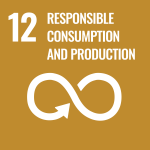The future of medication: enabling self-care with chemistry
Drug delivery devices are specialised tools for the delivery of a drug via a specific route of administration: by swallowing, by inhalation, by absorption through the skin, or by intravenous injection. These devices control the rate at which a drug is released and the location in the body where it is released. Administering drugs locally rather than systemically (affecting the whole body) is a common way to decrease side effects and drug toxicity while maximising a treatment’s impact.
Covestro has developed a material which is ideal for drug delivery devices because it offers durability, processability, safety and design flexibility: medical-grade polycarbonate. The material maximises design freedom, meaning it allows for the drug delivery device to come in the form of an on-body device or a needle-free injection device. The material is so light and portable that it can fit in a purse or even a pocket. These systems allow patients, such as those with diabetes, to self-administer their drugs wherever they are, with a more accurate dosage.
Due to the incorporation of a digital monitor as well as indicators and light guides, the various devices do not only deliver the medication, but also function as a personal health monitor.
How sustainable is medical-grade polycarbonate?
All the parts of an autoinjector device can be produced using standard and bio-circular medical-grade polycarbonates. When applying Covestro’s bio-circular medical-grade polycarbonates, this facilitates the recycling of the different parts of the autoinjector at end of life, and customers can reduce their devices’ overall carbon footprint, since these polycarbonates have a carbon footprint equal to zero.
Associated SDG Targets


